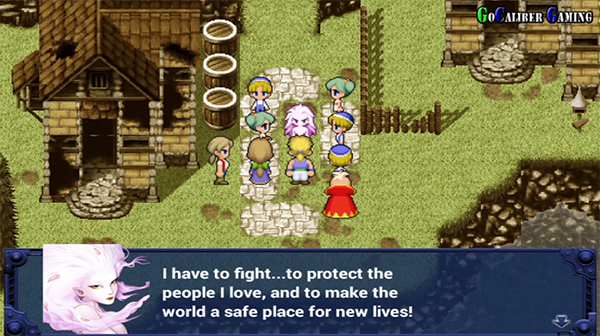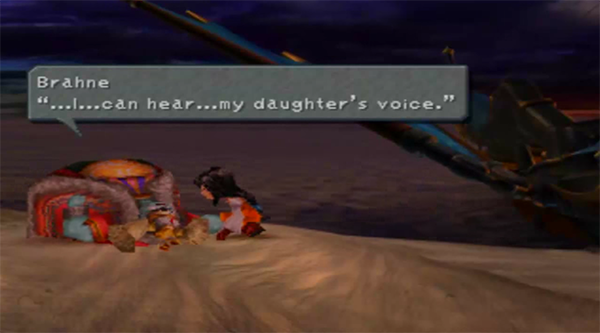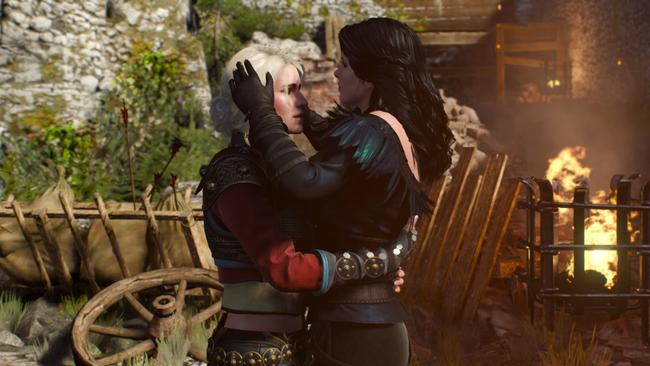
Final Fantasy Should Seek Inspiration from Final Fantasy VI and Final Fantasy IX to Fix its Issues with Portraying Motherhood
Final Fantasy is one of the most influential game series out there, and part of why so many have loved it for so long is because it is defined by its memorable characters, their stories, and their relationships among each other. While there are a multitude of relationships represented across the series - such as friends, lovers, siblings, rivals, and mentors - there is a distressing lack of one relationship: the relationship between a mother and her child.
Almost all Final Fantasy games suffer from a bigger problem the media at large has: undermining the roles of mothers in their stories. The only exceptions are Final Fantasy VI – whose main character eventually assumes a motherhood role that is explored with depth, nuance, and heart – and Final Fantasy IX – whose main heroine experiences a complex relationship with her mother. Final Fantasy is undoubtedly one of the most influential franchises in the video game industry, setting the precedent for so many fantastic RPGs for the past thirty years. The things Final Fantasy as a series does are watched by the world, so I can think of few other franchises that are best suited for taking up a mantle to do something that the rest of the industry can get behind.
Final Fantasy has had a strong focus on father-child relationships for some time now. Final Fantasy VI's story line for one of its main characters, Shadow, explores his identity as a father. One of Final Fantasy VII’s main characters is Barret Wallace, a man who adopts a little girl named Marlene after her biological parents are killed by Shinra troops. Final Fantasy VIII incorporates dual protagonists, which are Squall Leonhart and his father, Laguna Loire. Final Fantasy X is a story about a hero defying his abusive father and enemy; of Tidus stepping out of Jecht’s shadow as a Blitzball player to shape his own identity, and of Yuna living in her own father's shadow as a summoner destined to follow his path. Final Fantasy XII has the character arc of one of its central characters, Balthier, focus on his relationship with his father, who serves as one of the game’s villains. Final Fantasy XIII takes the player on the different journeys of each of its cast members, among them being Sazh Katzroy’s journey to rescue his son. Final Fantasy XV’s arguably most important theme is the relationship between prince Noctis Lucis Caelum and his father, king Regis Lucis Caelum.
In contrast, most of these games do not explore motherhood or mother-child relationships. Final Fantasy VII features Lucrecia Crescent, Sephiroth’s mother, but she doesn't feel like a fully fleshed out character and mostly exists to serve the developments of Sephiroth and Vincent Valentine. Final Fantasy VIII features a few women who are mothers but doesn't actually explore their motherhood. Final Fantasy X fleetingly shows Tidus's mother and ignores the existence of Yuna's mother. Final Fantasy XII doesn't really portray any mothers. Final Fantasy XIII features Hope's mother for only a few minutes before killing her off after she says, “moms are tough,” which has become the source of several memes for years. In Final Fantasy XV, Noctis's mother is dead from the beginning of the story.
The two games that are the exceptions are Final Fantasy VI and Final Fantasy IX.

While Final Fantasy VI explores fatherhood through one of its characters, it also shows an in-depth and empowering portrayal of motherhood, recognizing that fatherhood and motherhood aren’t mutually exclusive concepts. Despite the game having no official protagonist among its large and diverse cast, Terra Branford is widely considered to be the face and central protagonist of the game. The game starts with Terra knowing little else than her first name, and her character arc is largely about her journey of self-discovery. Early on in her journey, Terra asks Celes - who was artificially infused with magic as a child - if it is possible for her to love other people. Terra fears that, due to her half-esper nature, she will be unable to love, so she wonders if Celes can feel it due to her own special nature. Later, Terra asks General Leo if she can love and be loved by a human because she doesn't know what it feels like. He says she’s young and will know someday, and after he leaves, she mutters to herself that she'd like to know what it feels like now.
After the end of the world at Kefka's hands, Terra stays in a town named Mobliz to take care of a group of children who have lost their parents. Following an initial attack, she joins her friends in battle to protect the town during a second attack, revealing her esper form to the children in the process. Instead of fear, the children only show acceptance and affection towards their mother figure's true form. Terra reaches the realization that she now knows what love is: it is the feeling she feels for the orphaned children – the same feeling they feel for her, and it is this feeling that helps her regain the courage to fight Kefka. Ultimately, it is through her love for the children that she literally gains humanization at the end of the game. She lives on as the person she's always wanted to be with the knowledge that love exists - exists in her - and is something she has always been able to experience as a person.
Terra is never constrained by her motherhood role; rather, her choice to be a caring mother empowers her and instills strength in her character. Her story arc could have easily centered around her finding the meaning of love through a romantic relationship with a man. After all, that's what I expected to happen when I played the game as a young girl who had grown up seeing the media deem romantic love between a man and woman as the most powerful form of love. However, seeing Terra realize and define love as the bond between her and the children transformed how I viewed love from a young age; it made the definition of love expand and the weight of it grow.
Final Fantasy IX explores the other side to our relationships with our family members. It’s one of the most interesting entries in the series due to the fact that the childish art style and bright colors mask what is probably the darkest Final Fantasy. Final Fantasy IX touches upon death, existentialism, and–through Princess Garnet and adoptive her mother, Queen Brahne–the complexities of a toxic familial relationship.

Brahne was once a kind and benevolent queen, but after the death of her husband and the appearance of Kuja–Final Fantasy IX’s main villain–in her kingdom, she turned into the cruel ruler seen at the beginning of the game. Kuja’s manipulations convince her to care only about greed and power, and she disregards her daughter and the lives of all innocent people in the process of attaining what she desires. She’s immediately set up as one of the antagonists of the game, but Final Fantasy IX does more than reduce her to a simple villain.
After pursuing an ever-growing degree of power throughout the majority of the game, Brahne is ultimately betrayed by the very advisor that caused her to wage the terrible war. She eventually decides that she no longer needs Kuja for her plans, but upon seeking him out to eliminate him, he enslaves her eidolon and destroys her fleet. Brahne’s escape pod reaches a beach, where she soon dies after Garnet finds her. She passes away in Garnet’s arms, but before doing so she apologizes for all the pain she caused not just to the world, but also to her daughter. Garnet, despite resenting her mother for all the destruction she has caused, deeply mourns the death of her mother–and it’s one of the most touching scenes in the entire franchise.
More than anyone, Garnet knows the lengths to which her adoptive mother’s cruelty has reached, but she loves her all the same. Brahne’s death scene is an opportunity for redemption that perfectly captures the complexity of human beings, of how we’re not easily defined as just “good” or “bad” people. It’s safe to assume that Garnet will never forget her mother’s actions and that–through those actions–she has learned what kind of ruler she never wants to be. But she ultimately forgives her mother because, despite it all, her mother raised her, taught her about the world and herself, and was once loving and supportive. Garnet’s painful, complicated, and empathetic relationship with her mother is essential to her character because it demonstrates her biggest strength. In her own quiet way, Garnet is revolutionary because she conveys that there is no weakness in being good and believing in the good that exists in others. The mother-daughter relationship demonstrated in this game is important to both characters from start to finish, and it is also what brings both of their character arcs to a close.
Unfortunately, the Final Fantasy franchise has not demonstrated such an authentic representation of motherhood since Final Fantasy IX. The series is saturated with stories of fatherhood–as is the video game industry overall. Outside of Final Fantasy, there are many well-known titles that focus on fatherhood, such as The Witcher 3: Wild Hunt, The Last of Us, Bioshock Infinite, The Walking Dead, Heavy Rain, Silent Hill, Dishonored, Persona 4 and Persona 5, Read Dead Redemption, Tomb Raider, Uncharted, Mass Effect: Andromeda, the upcoming God of War…and the list goes on. All these games contain narratives that heavily focus on fatherhood and that, save for two of the games in this list, let you play as a father or father figure.
In contrast to the representation of fathers in games, there seems to be a much smaller amount of games that focus on mothers and mother figures. Most of the ones that come to mind are also only quite recent, such as Horizon Zero Dawn, Overwatch, The Witcher 3: Wild Hunt, Mass Effect 2, Life is Strange, Undertale, and Bayonetta. However, save for Horizon Zero Dawn and Bayonetta, motherhood is not tied to a primary theme in any of these games, and Bayonetta and Overwatch are the only games in which you get to actually play as a mother or mother figure.

And that isn’t to say there shouldn’t be such great portrayals of fatherhood; it can be a meaningful relationship that should absolutely be explored, especially to the emotional lengths that many Final Fantasy games and games in general have. However, there is not an equal amount of video games that take the opportunity to explore and focus on motherhood.
The visible lack of meaningful portrayals of motherhood isn’t something exclusive to video games, either; it’s something that generally happens often in the media. Mothers are often on the sidelines instead of the center. They tend to be pushed into common tropes like the villainous stepmother; the housewife who remains in the background and away from the action; the mother who is barely shown on the screen apart from the few moments in which the children roll their eyes at her as she scolds them. Thus, motherhood is not respected to the same degree as fatherhood in our media, leading to a society in which mothers and their stories tend to be undervalued.
The issue only feels especially prominent in the already male-saturated world of video games, and in order to empower women and properly represent them, all the different identities and roles a woman can encompass should be portrayed. Thinking about the absence of effective portrayals of motherhood in video games has made me realize how special and important Final Fantasy VI and IX are; the ways they represent motherhood are why these games feel timeless and are still so impactful today even as we delve deeper into an age in which games now look very different. But with those exceptions, despite having a wide array of some of the most multi-dimensional women in the video game world, Final Fantasy has had a lack of focus on motherhood that is hard to ignore -- and it can do so much better.
The identity of a mother is a highly complex one, and the relationship between a mother and her child can vary: It can be warm and heartwarming; cold and hurtful; troubled and filled with mistakes -- or all these things at different points in time. The series has so many opportunities to explore all these different aspects of a type of relationship that it has simply not explored enough. Nonetheless, I have hope that a future installment will take the baton from the wonderful Final Fantasy VI and Final Fantasy IX to once more explore the vast complexities of motherhood in equally meaningful ways.